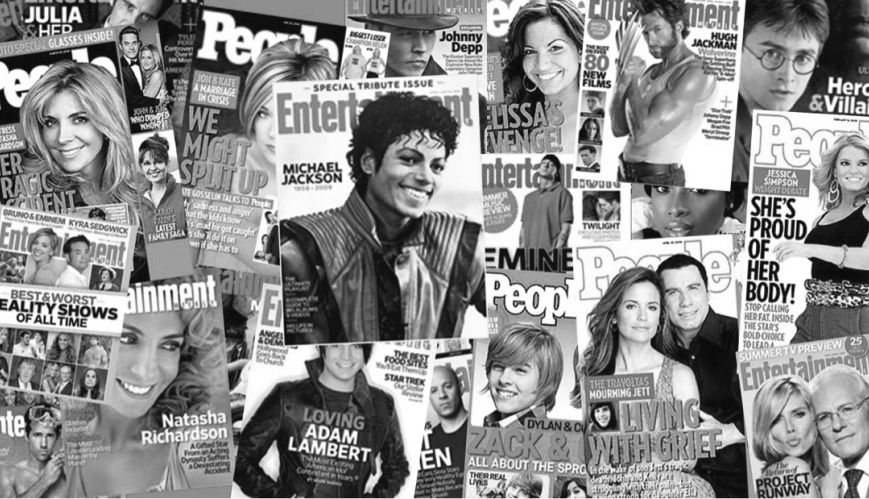I don't care if you're famous

I don't care if you're famous
5 February 2017
For years I have made it a point of principle to switch off the TV whenever there’s a program with the word “celebrity” in the title. For a start, I’ve never heard of most of the people who appear in these shows.
I can only conclude that they were once well known for something they were actually good at, and that they now find it difficult to live without that fame.
So they, or their agents, have managed to get them on the TV in the hope of resurrecting their fading careers. And that makes me feel sad that they can’t get on with life, enjoy just being alive and well, and find something meaningful and productive to do.
Then there’s also the fact that I can’t think of any good reason why I’d want to give up an hour of my time watching people dancing, baking, skating, answering questions or whatever, just because they achieved a level of fame in some other field. Why don’t they just go and do what they’re supposed to be good at?
You may well be thinking that my reaction is over the top, but this celebrity thing is important and it is worrying.
In fact, psychologists at the University of Leicester have been studying the phenomenon of CWS - Celebrity Worship Syndrome. According to their findings, one in every three people manifests some signs of this condition. The symptoms range from someone just talking a great deal about a particular celebrity, through feeling some kind of intense personal relationship, to a borderline pathological state in which the person believes they have a special relationship with their celebrity to the point at which they would be willing to die for them.
The current obsession with celebrity is an indicator of some deep-seated issues facing society. To quote from an article by Dr John Maltby in The Journal of Nervous and Mental Disease: “Our findings suggest the possibility that many people do not engage in celebrity worship for mere entertainment.” Yes, it concerns me, and I’ll give you three reasons why.
Firstly, the clue is in the name the psychologists have given to this condition – Celebrity Worship Syndrome. The current obsession with celebrities may well arise from a loss of spirituality and a genuine religious life. Explain it how you will, there is an innate need in humankind to worship someone or something that is bigger, better and more wonderful than ourselves.
The reductionist philosophies of the so- called New Atheism that try to explain everything in evolutionary terms simply do not do justice to what it means to be human. Each of us is far more than a random collection of atoms, far more than our appetites for food, sex and shelter. It’s difficult – impossible for many of us – to escape the conviction that we were created by and for a loving Creator and that it is in worship of that Creator that we find the deepest meaning of our humanity. Deny that worship, and it will find expression elsewhere.
Secondly, we live in a world of mass communication, global news networks, and the all-pervasive social media. But in the midst of all this, there are countless lonely people. Loneliness is one of the great social problems of the civilised, affluent, Western world. But we were made for relationship. To quote Dr Maltby again: “Research is suggesting that people with CWS may be replacing normal relationships with these relationships. If that proves to be the case, it would be very worrying for society.”
Thirdly, an obsession with celebrity goes hand-in-hand with a loss of personal significance and self-respect. It is based on the delusion that these people are better than the rest of us. It makes us wish that we had their life, their personality, their looks, their possessions, their personality, their status. And it loses sight of the truth that everyone is unique, special, and made in the image of God.
Yes it is worrying when people feel closer to a distant celebrity than to their next- door neighbour, their work colleague, or even to a family member. And this is both an opportunity and a challenge to the Church. Every church I have ever known describes itself as “a friendly church”. And to every church I have ever known I say the same thing: No church is as friendly as it thinks it is. If we were, people would be flocking to our doors. And the truth is that people are not looking for friendliness.
They’re looking for friendship. There’s a big difference. And if we Christians devoted more of our time and energy to being friends to others rather than just being friendly it might make the world a better place.
Chick Yuill is a regular speaker at major Christian conferences and has frequently appeared on radio and TV, speaking on issues of faith and morality. He blogs at anvilding.com